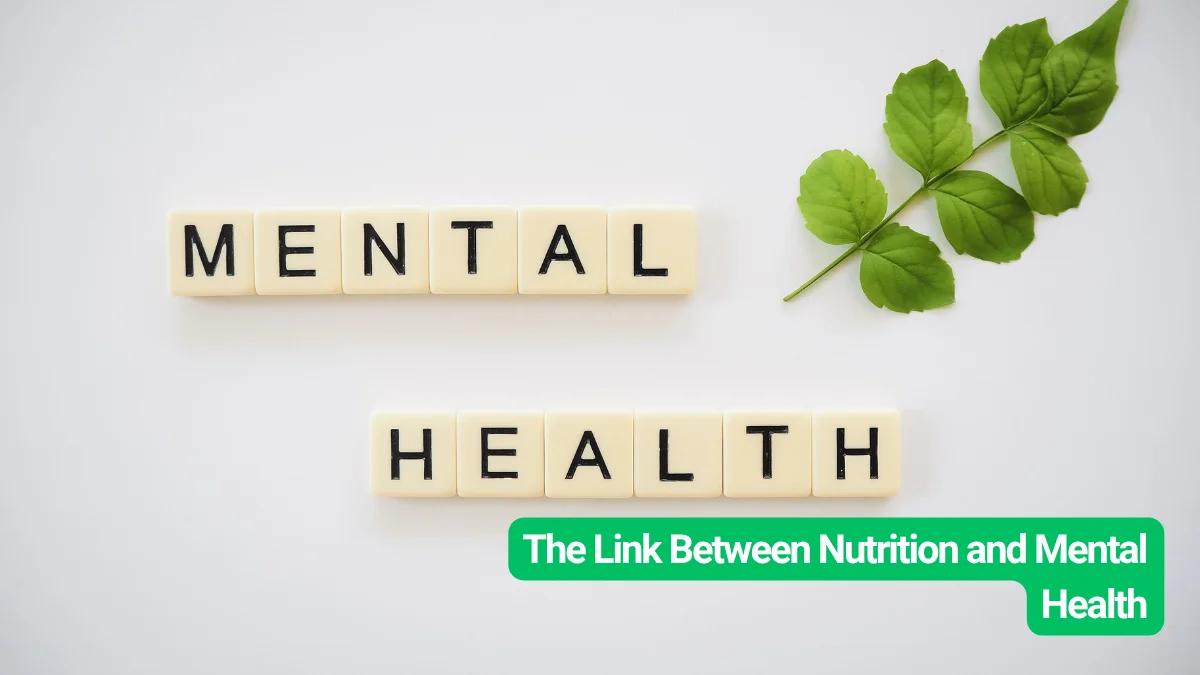Good nutrition supports more than physical strength. It also plays a major role in how the mind functions each day. The brain needs steady energy and the right nutrients to maintain mood, focus, stress response and overall emotional balance. Growing research shows that a well-planned diet can support better mental well-being, reduce certain symptoms and help the body handle stress in a healthier way.
Key Takeaways On Nutrition and Mental Health
- A nutrient-rich diet supports mood, energy, stress control and brain function.
- The gut, immune system and nervous system strongly influence mental health.
- Poor nutrition may increase inflammation and disturb neurotransmitters linked to mood.
- A healthy eating pattern can reduce anxiety, depressive symptoms and irritability.
- Traditional diets built on whole foods show better mental health outcomes than ultra-processed diets.
How Nutrition Shapes Mental Well-Being
The brain is always active. It needs a constant supply of vitamins, minerals, antioxidants, fats, carbohydrates and protein. These nutrients support hormones and neurotransmitters that influence sleep, mood and stress response. When the body does not get enough nutrients, it protects essential functions and reduces energy for mental wellness.
A major part of this process involves serotonin, a key chemical that affects mood, appetite and sleep. A large part of serotonin is created in the gut. For this reason, the gut and brain stay closely connected. If the gut lacks fiber, minerals or diverse microbes, the production of serotonin and other chemicals can drop. This may affect mood stability.
Another important area is blood sugar control. Sudden spikes and drops in sugar levels can lead to irritability, tiredness, low focus and anxiety. A balanced diet helps avoid these sharp changes and allows the body to maintain steady energy.
Core Nutrition Factors That Influence Mental Health
- Gut microbiome diversity
- Steady blood sugar levels
- Healthy fats for brain function
- Adequate protein intake
- Antioxidants and micronutrients
- Low inflammation through whole foods
1. Gut microbiome diversity
A diverse gut environment supports better communication between the gut and the brain. When the gut has many helpful bacteria it produces more natural chemicals that support mood and focus. These chemicals help the nervous system stay calm and steady. A poor gut environment often leads to stress and irregular mood patterns.
A balanced gut also helps digestion work smoothly. When food breaks down well the body absorbs nutrients without strain. This leads to steady energy and fewer emotional dips. Good gut bacteria lower unwanted inflammation which is linked with low mood and mental tiredness.
Everyday choices affect gut diversity. Fresh foods feed the good bacteria and help them grow. Processed foods harm the balance which can affect thinking and emotional clarity. Improving gut health over time creates long lasting support for mental strength.
Benefits:
• Better mood regulation
• Steady digestion
• Reduced inflammation
• Improved nutrient absorption
Use cases:
• People with anxiety
• Individuals with brain fog
• Those recovering from stress
2. Steady blood sugar levels
When blood sugar stays stable the brain receives a constant supply of energy. This helps maintain focus and reduces sudden mood changes. Quick rises and drops in blood sugar force the body to work harder which may lead to irritability or tiredness.
Keeping meals balanced plays a major role in mental calmness.
Slow digesting foods help avoid sudden highs and lows. These foods release energy at a gentle pace which keeps the mind clear. Skipping meals or eating too many sugary foods leads to uneven energy and causes the brain to feel overwhelmed.
Stable blood sugar also supports hormone balance. Stress hormones rise when blood sugar crashes. This can affect emotional stability and decision making. With steady levels the body stays in a comfortable and relaxed state during the day.
Benefits:
• More stable mood
• Better focus
• Reduced stress response
• Improved energy flow
Use cases:
• People with afternoon fatigue
• Individuals dealing with irritability
• Students and working professionals
3. Healthy fats for brain function
Healthy fats support the structure of brain cells. These fats help signals move smoothly between neurons. When the brain receives enough good fats thinking becomes sharp and memory stays strong. Without enough of these fats the brain may feel tired or slow.
Foods rich in healthy fats protect the brain from damage. They reduce stress in the body and help maintain emotional balance. These fats also support hormone health which directly affects mood quality. Many people feel calmer and more focused when they include these foods daily.
Healthy fats also help absorb key vitamins. These vitamins are needed for mental strength and nervous system health. Including these fats regularly creates long term support for brain wellness.
Benefits:
• Better memory
• Improved concentration
• Reduced mental fatigue
• Stronger brain protection
Use cases:
• Individuals needing better focus
• People dealing with mood swings
• Adults wanting long term brain support
4. Adequate protein intake
Protein provides the building blocks for brain chemicals that manage mood. When the body gets enough protein it produces steady levels of these chemicals. This leads to emotional balance and clearer thinking. Not enough protein often results in low energy and difficulty staying alert.
Protein keeps the body full for a longer period. This prevents sudden hunger which often triggers stress or irritation. It also supports stable blood sugar which helps maintain calmness through the day. Balanced protein intake keeps the mind active without feeling overwhelmed.
Protein also helps repair body tissues which lowers physical fatigue. When the body feels strong the mind functions better. Regular intake supports long term health and mental resilience.
Benefits:
• Enhanced mood stability
• Better alertness
• Reduced cravings
• Stronger mental endurance
Use cases:
• Students and professionals
• People with low energy
• Individuals managing stress
5. Antioxidants and micronutrients
Antioxidants protect brain cells from stress and damage. When the brain stays protected it works smoothly and stays clear. These nutrients reduce the strain caused by daily pressure and environmental factors. They keep the mind fresh and reduce mental weariness.
Micronutrients support the creation of brain chemicals that regulate mood. When these nutrients are missing the brain struggles with energy and clarity. Small daily improvements in food choices help ensure the brain receives everything it needs.
These nutrients also lower inflammation which is connected to low mood and tiredness. Eating colorful foods provides a mix of protective compounds that help maintain emotional stability.
Benefits:
• Reduced mental stress
• Clear thinking
• Stronger brain defense
• Better emotional balance
Use cases:
• People with high workload
• Those facing mental tiredness
• Individuals wanting overall wellness
6. Low inflammation through whole foods
Whole foods help control inflammation in the body. When inflammation stays low the brain functions better and feels more relaxed. High inflammation often leads to mood discomfort and trouble focusing. Choosing simple and natural foods helps the body stay calm.
Whole foods give nutrients that the body can use easily. These nutrients help regulate stress levels and support long term mental strength. They also reduce internal pressure which improves overall comfort. Eating fewer processed foods helps avoid substances that trigger inflammation.
Staying consistent with whole foods creates a stable foundation for mental health. Over time the body becomes stronger and the mind more steady.
Benefits:
• Better emotional balance
• Lower physical stress
• Improved clarity
• Long term mental wellness
Use cases:
• Individuals with stress
• People dealing with mood dips
• Anyone seeking natural health support
The Gut–Brain Connection
The gut contains billions of bacteria that help produce vitamins, support digestion and guide signals to the brain. A healthy microbiome depends heavily on fiber, especially from foods like leafy greens, beans, fruit skins, seeds and whole grains. When the gut has enough fiber, its bacteria become more diverse. A diverse microbiome can support stronger stress tolerance and better mood stability.
A weak or unbalanced microbiome may allow harmful bacteria to grow. This can increase inflammation and reduce nutrients needed to support mental wellness. Studies continue to examine how gut diversity in mothers may shape early mental development in children. While the exact cause is still unknown, findings show that a healthier gut environment aligns with fewer early emotional difficulties.
The Role of Inflammation and the Immune System
Inflammation plays a major part in how the body reacts to food. Certain foods can increase inflammation, especially high sugar items, additives and saturated fats. When inflammation becomes frequent, it can affect parts of the brain that regulate emotions, including the hippocampus and amygdala. These changes may add to stress, low mood and cognitive decline if left unaddressed.
Many studies link inflammatory diets to higher risks of anxiety and depression. Diets high in whole foods tend to lower inflammation over time, helping support stronger mental resilience.
How Nutrition Supports the Nervous System
The nervous system depends on nutrients to build and maintain nerve fibers. Without enough amino acids, minerals and fats, the brain struggles to form strong communication pathways. Omega-3 fatty acids are especially helpful because they support flexible nerve cell structure and may reduce inflammation in the brain. These healthy fats are found in foods like salmon, sardines, walnuts, chia and flax.
When the nervous system works efficiently, the body handles stress better. It also adjusts faster to daily challenges, which supports a more stable mood.
Malnutrition and Its Mental Toll
Malnutrition affects the mind in many ways. Lack of steady nutrients can cause depression, irritability, cognitive issues and anxiety. Undernutrition leads to fatigue, thinning hair and weakness. Overnutrition leads to high blood pressure, insulin resistance and weight gain. Both conditions can affect emotional balance.
Children and older adults are at higher risk of malnutrition due to growth needs or reduced nutrient absorption. Food insecurity also increases emotional stress, which can worsen anxiety or depressive symptoms. Balanced meals that include enough calories, protein and micronutrients can prevent many of these issues.
Why Traditional Diets Support Better Mental Health
Traditional diets built around vegetables, fruits, fish, legumes, whole grains and healthy fats are linked with better mental health outcomes. Mediterranean, Okinawan, Nordic and West African diets share key features: high fiber, minimal added sugar and strong nutrient density. These eating patterns often show lower rates of depression in long-term studies.
On the other hand, ultra-processed diets can harm both physical and mental health. These foods often cause blood sugar spikes, low fiber intake and poor gut health. They may also trigger quick dopamine responses that lead to compulsive eating habits. With time, these patterns reduce energy, mood and stress tolerance.
Modern Approaches: Nutrition in Mental Health Treatment
Nutritional psychiatry is growing as more studies show the clear link between diet and mood. Research shows that improving omega-3 intake, stabilizing blood sugar and reducing inflammation may support better emotional balance. Trials using nutrient-dense diets show meaningful reduction in depressive symptoms. A 12-month Mediterranean diet study showed a 20.6-point drop in depression scores, a significant improvement.
Factors such as fasting and ketogenic diets are also being studied for their impact on brain chemistry. Controlled fasting may help reduce inflammation and improve energy use. The ketogenic diet has been used in neurological care for decades and continues to be researched for its role in mood stabilization.
Simple Ways to Improve Daily Nutrition for Better Mental Health
Improving nutrition for mental wellness requires steady habits. Cutting ultra-processed foods reduces sugar swings and cravings. Adding healthy fats like nuts, seeds, eggs and olive oil supports longer fullness. Planning simple snacks such as boiled eggs, nuts, fruit or whole-grain options helps reduce emotional eating.
Shopping with a list and avoiding hunger shopping prevents impulsive food choices. Eating slowly and recognizing emotional triggers supports better food decisions. Small daily steps create steady progress, and most benefits appear after weeks of consistent habits.
Final Thoughts On Nutrition and Mental Health
A healthy diet is not a cure for all mental health challenges, but it is a strong foundation. Nutrition influences the gut, the nervous system, the immune system and brain chemistry. Small improvements in diet add up to better energy, stable mood and stronger resilience. Long-term mental wellness comes from everyday choices, and a balanced diet remains one of the most effective steps in the right direction.








